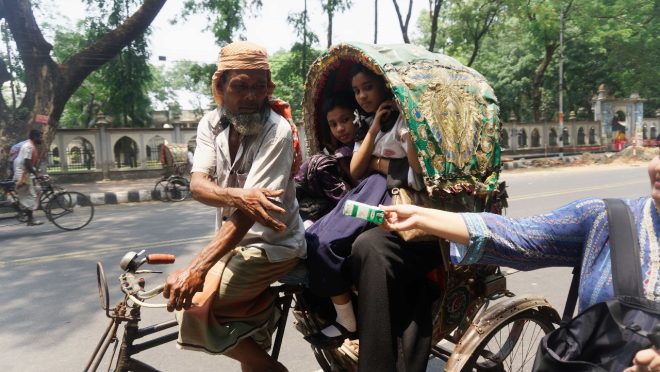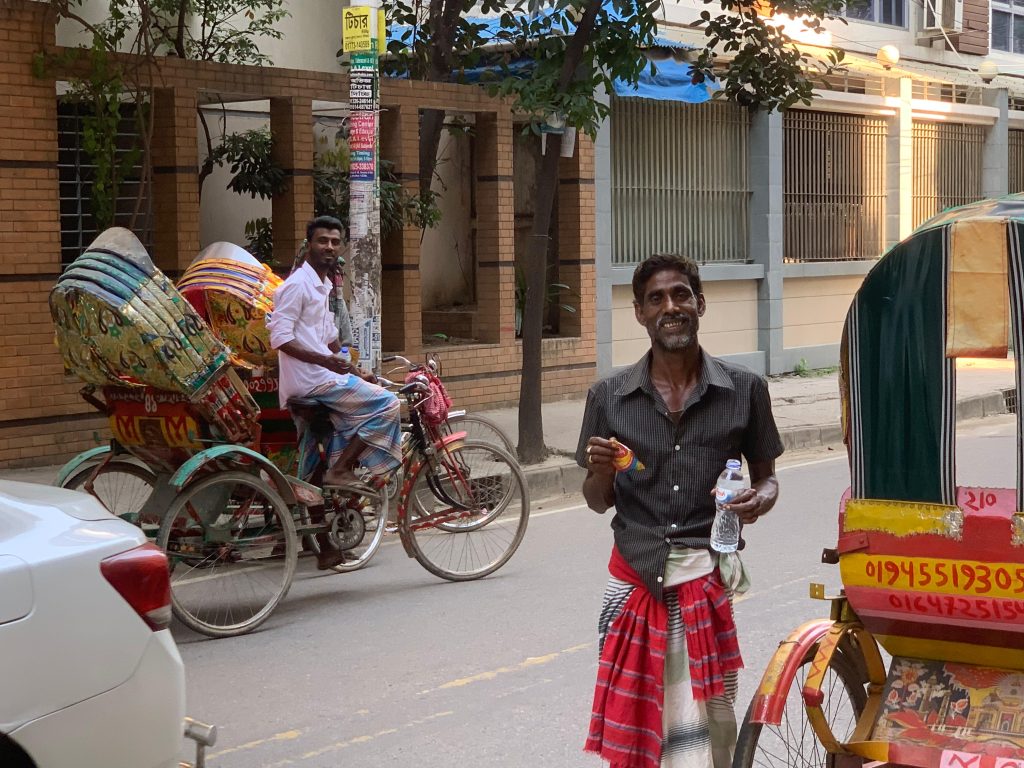Dhaka's heatwave heroes: A City unites to beat the heat
Dhaka's heatwave heroes: A City unites to beat the heat

The unrelenting heatwave is making life under the sun increasingly difficult. While some have the privilege of escaping the heat indoors, countless others toil under the unforgiving sun. This was the reality that struck Dhaka’s residents, and it was this shared experience that ignited a movement – not a project by an organization, but a collective action driven by the inherent kindness of the city’s people.
At the heart of this movement was Ali Eraisa, a 21-year-old student at NSU. Moved by the plight of rickshaw pullers, street vendors, and others forced to work outdoors, Eraisa took the initiative to launch a Facebook campaign, appealing to the compassion of her fellow citizens. Every taka donated, she declared, would go towards purchasing essentials like water bottles, electrolytes, and saline. The response was overwhelming. Donations surpassed Tk55,000, not just from within Dhaka, but from kind souls abroad as well. Even Youtuber, Rafsan the Chotobhai, joined the cause, donating a significant amount of his own energy drink brand, BLU. This collective spirit translated into action through a dedicated team of 38 volunteers. They distributed over 458 liters of fluids across 12 locations in Dhaka, targeting rickshaw pullers, van pullers, even homeless mothers with children.
But the true impact lies in the countless individuals who received a much-needed respite from the scorching heatwave, a proof of the power of collective action and human compassion. A simple gesture of offering water and electrolytes brought a much-needed respite to those braving the heat.
A huge round of applause to the dedicated volunteers who tirelessly worked to distribute aid and ensure that no one was left behind. They braved the heat, navigated the bustling city streets, and interacted with those in need, all with a smile and a genuine desire to help.

Iftekhairul Islam , Mahmudul Hasan , Ahona Akhter ,Lamia Binte Islam, Priyo E. Rosario, Tanvir, Anjum Rakin, Sharbin Khondokar, Sanjida Shoshi, Mohaimin Ur Rahman, Bishal Sudeepto Roy,
Mohammaad Shariar Rahman, Md Mushfiqur Rahman Rifat, Ragib Sharier, Mahi Mahmud, Quazi E. Ahmed, Ariana Tahsin, Tanjim Hossain Adrita, Fahmida Oishee, Saraf Wamiah Kabir, Zerin Tasnim Oishee, Salman Sayem, Kongka Halder, Azmain Ishmam, Ratul, Kazi Yousra Momrez, Shatil Moniratnam, Shumaylah Elsa Haque, Sabirah Bahar, Sahirah Bahar Mahmuda Takia, Sajida Islam Mysh, Yousuf Ibne Ishaque, Nafees Raiyan, Aswon Ishrak Chomok, Mehedi Azad Shafin, Shatil Moniratnam, Shumayla Elsa Haque,and two other people who chose to remain anonymous.
Project Rickshaw wasn’t a top-down initiative, a pre-existing program, or a project with a single owner. It was a powerful display of humanity in action, a spontaneous movement born from the collective empathy of Dhaka’s residents. This wasn’t about claiming credit or organizational hierarchy. The success belongs not to a single individual, but to the countless people who, upon witnessing the plight of others, chose to act. Project Rickshaw wasn’t about obligation or charity; it was about a fundamental human impulse – the recognition of a shared experience and a deep-seated desire to ensure that the basic right to survive the scorching heat wasn’t a privilege reserved for a few, but a right protected for all.


